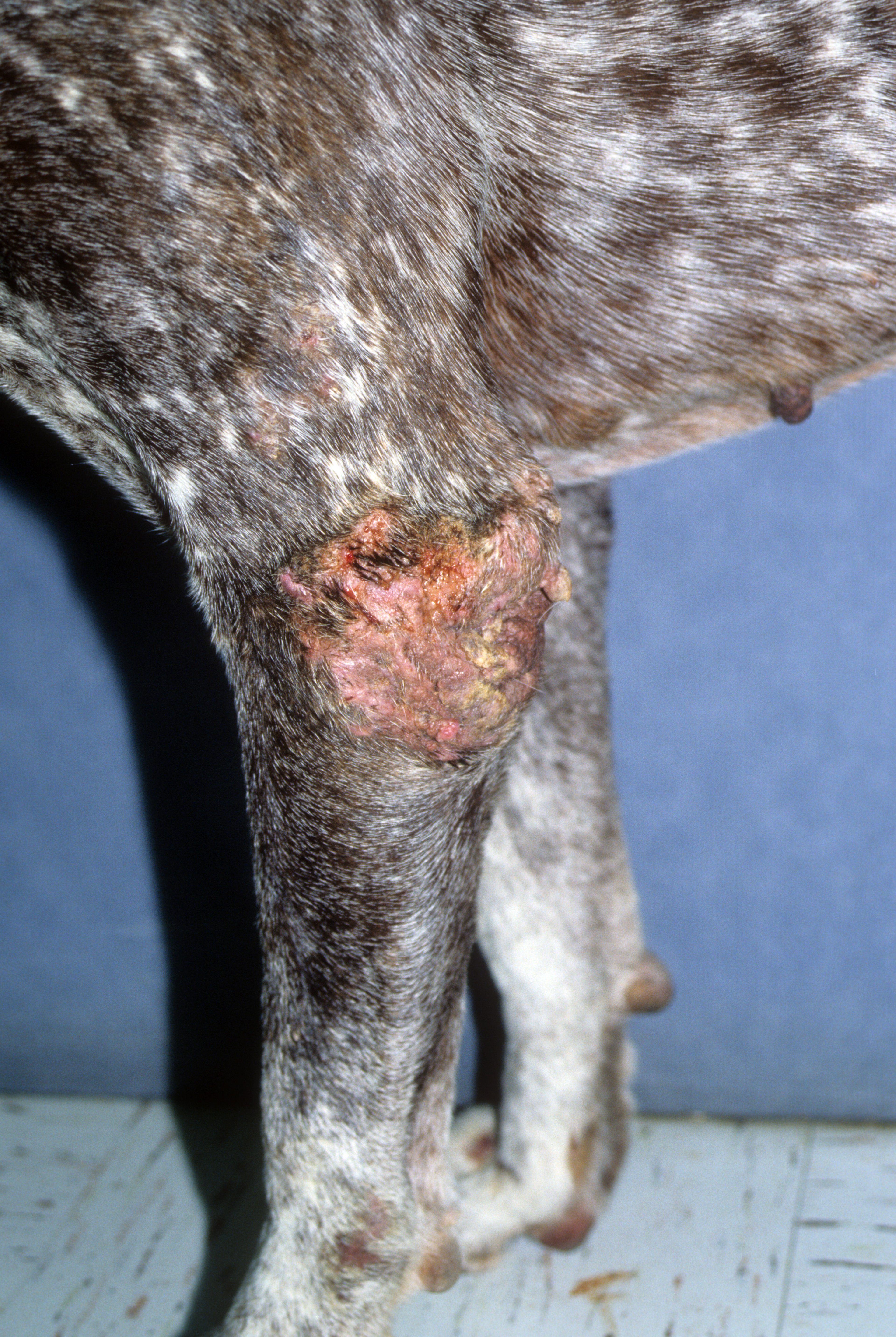Courtesy of Dr. Karen A. Moriello.
A hygroma is a false bursa that develops over bony prominences and pressure points, especially in large breeds of dogs. In young dogs the pathogenesis is believed to be due to trauma. In older dogs, hygromas tend to be result of impaired ambulation and excessive time spent in recumbency on hard surfaces. These are common in dogs with elbow arthritis. The trauma produces an inflammatory response, which results in a dense-walled, fluid-filled cavity. A soft, fluctuant, fluid-filled, painless swelling develops over pressure points, especially the olecranon or tarsus. If longstanding, severe inflammation may develop, and ulceration, infection, abscesses, granulomas, and fistulas may occur. The bursa contains a clear, yellow to red fluid.
Courtesy of Dr. Peter Muir.
If diagnosed early and if still small, hygromas can be managed medically via aseptic needle aspiration, followed by corrective housing. Soft bedding or padding over pressure points is imperative to prevent further trauma. Surgical drainage, flushing, and placement of Penrose drains are indicated for chronic hygromas. Small lesions can be treated with laser therapy. Lasers reduce inflammation and edema and help stimulate healing. Closed suction drainage also has been reported to be helpful. Areas with severe ulceration may require extensive drainage, extirpation, or skin grafting procedures. Use of intrahygromal corticosteroids is not recommended. Severe lesions can develop into decubital ulcers.
Hygromas can become complicated with comedones and furunculosis. Bacterial culture and susceptibility are always indicated before the use of antibiotic therapy. Furthermore, some dogs develop follicular cysts or calcinosis cutis circumscripta at these sites. A skin biopsy of atypical lesions or lesions that do not respond to conservative medical therapy is recommended.
For More Information
Also see Pet Health content regarding hygromas in dogs.
